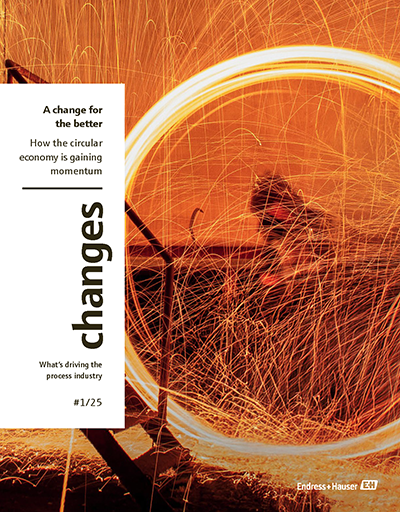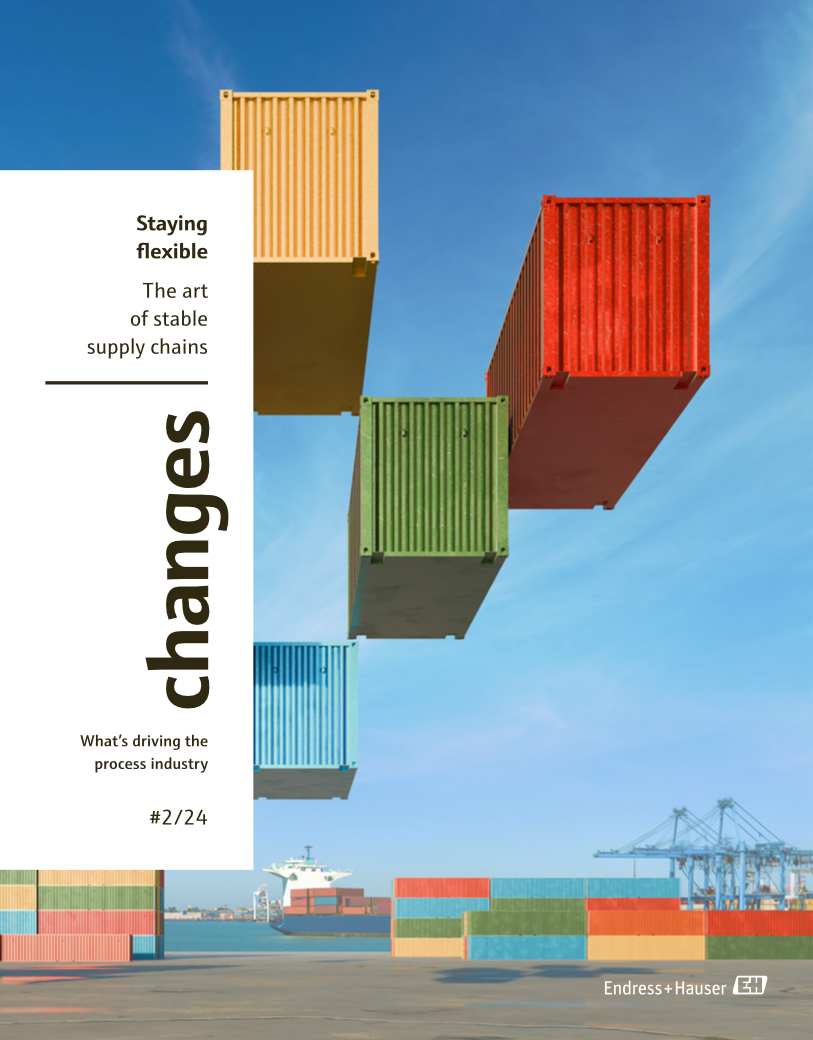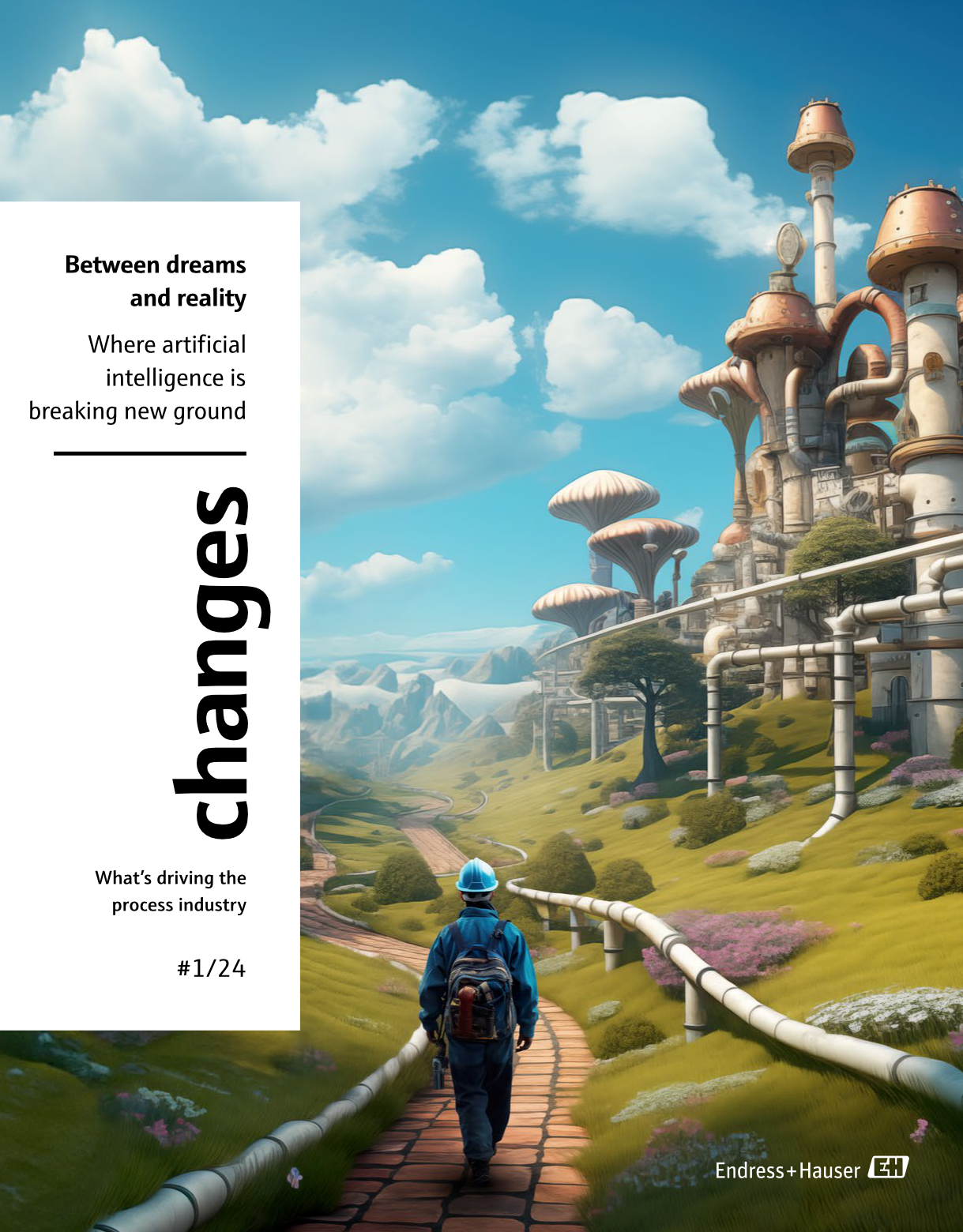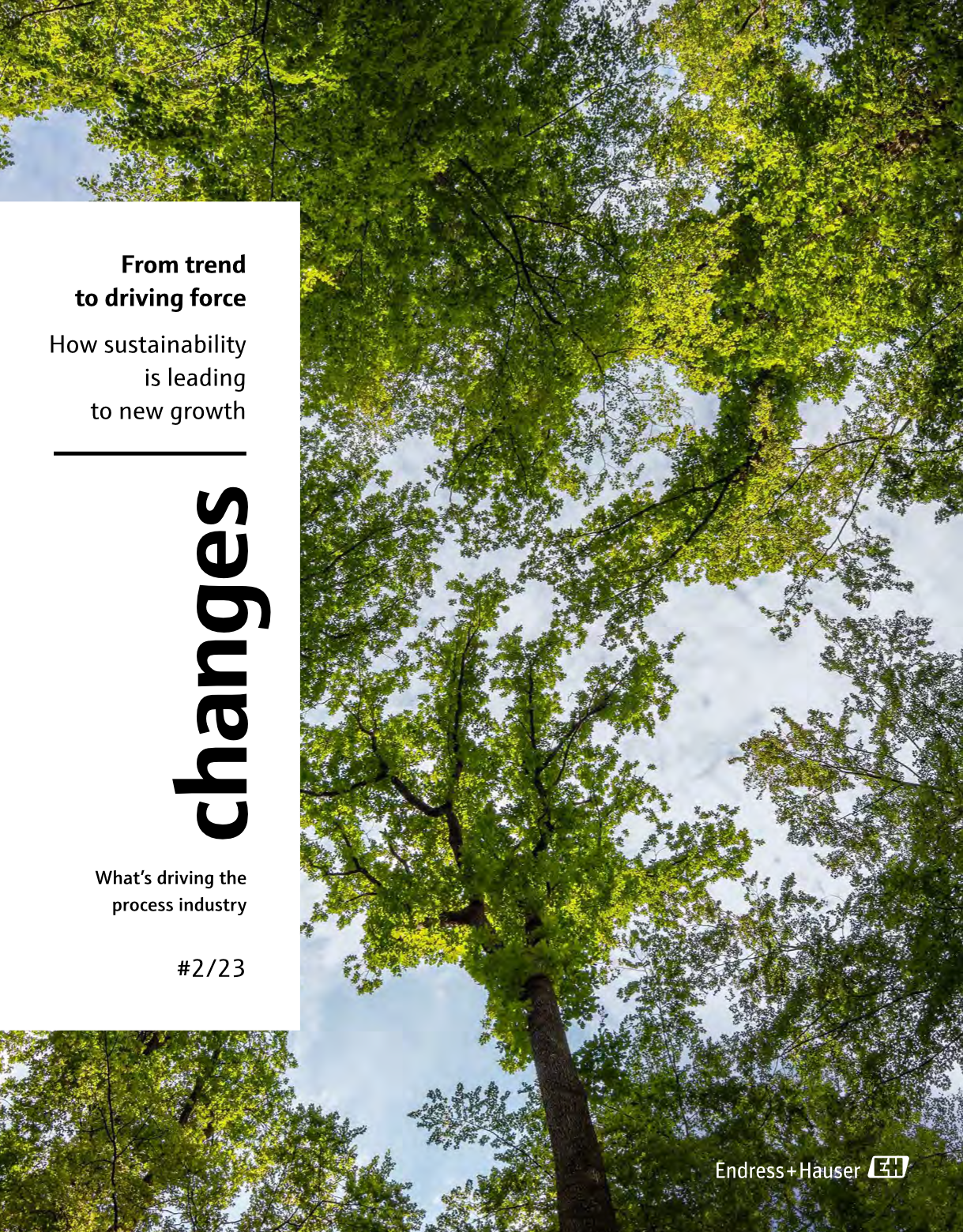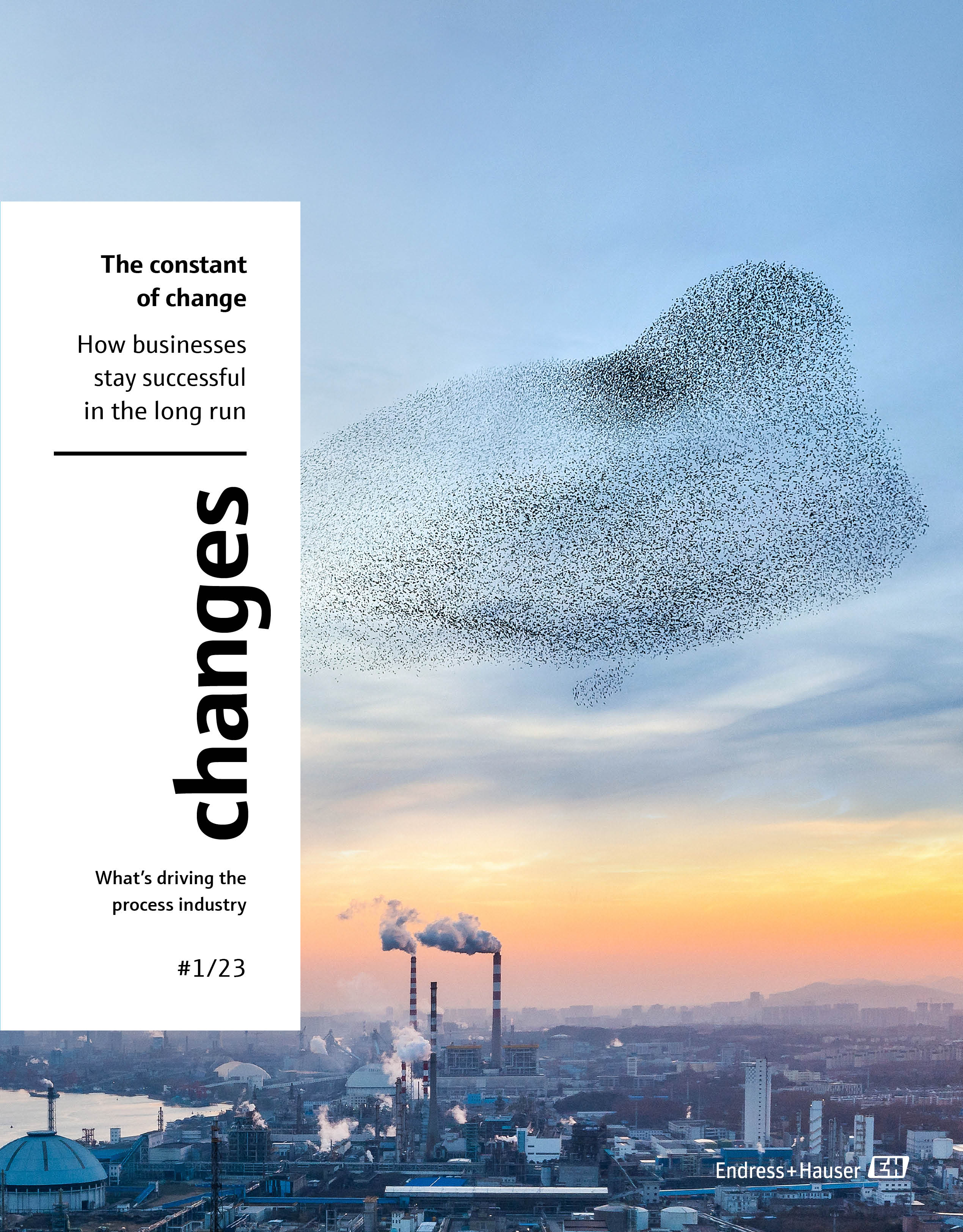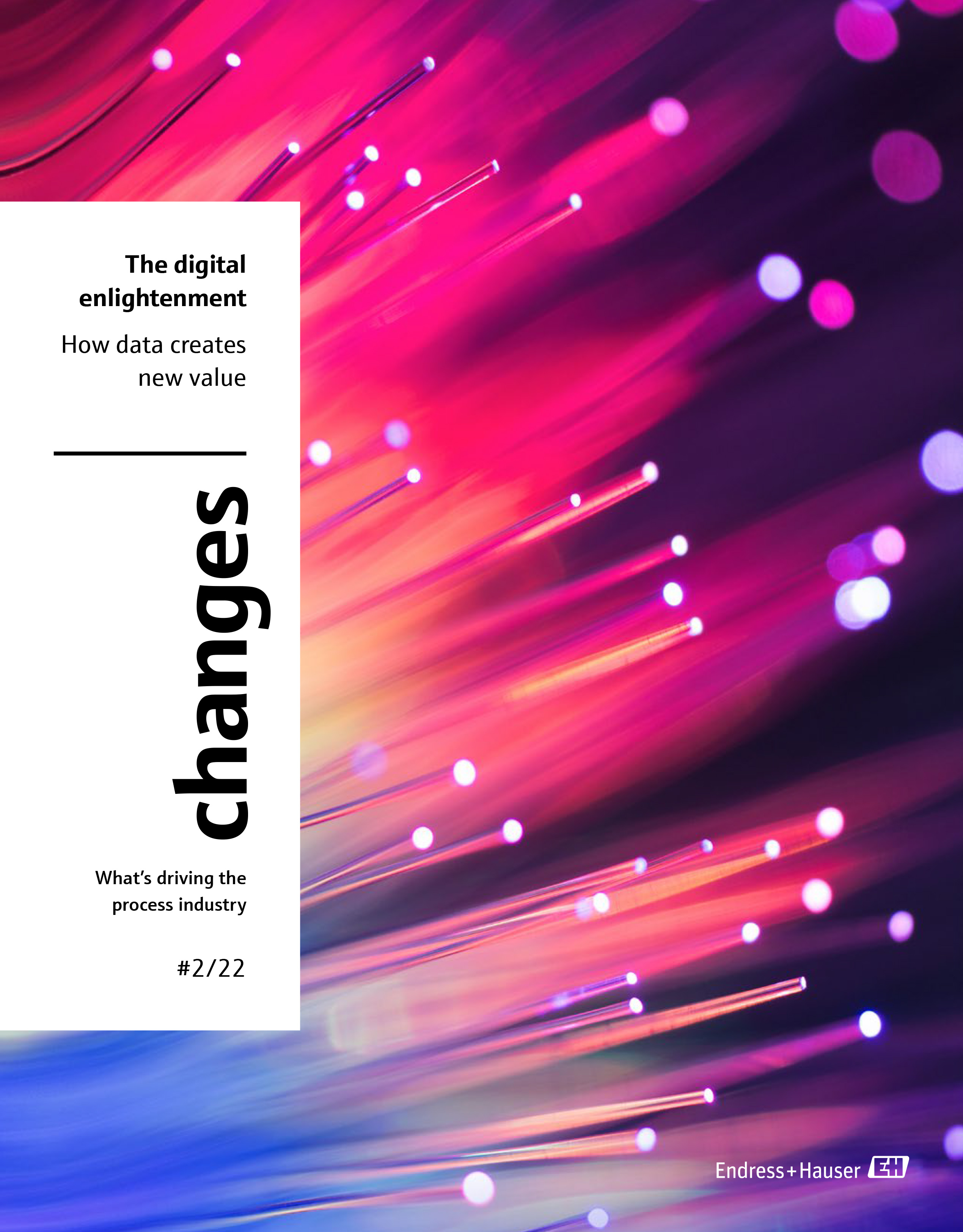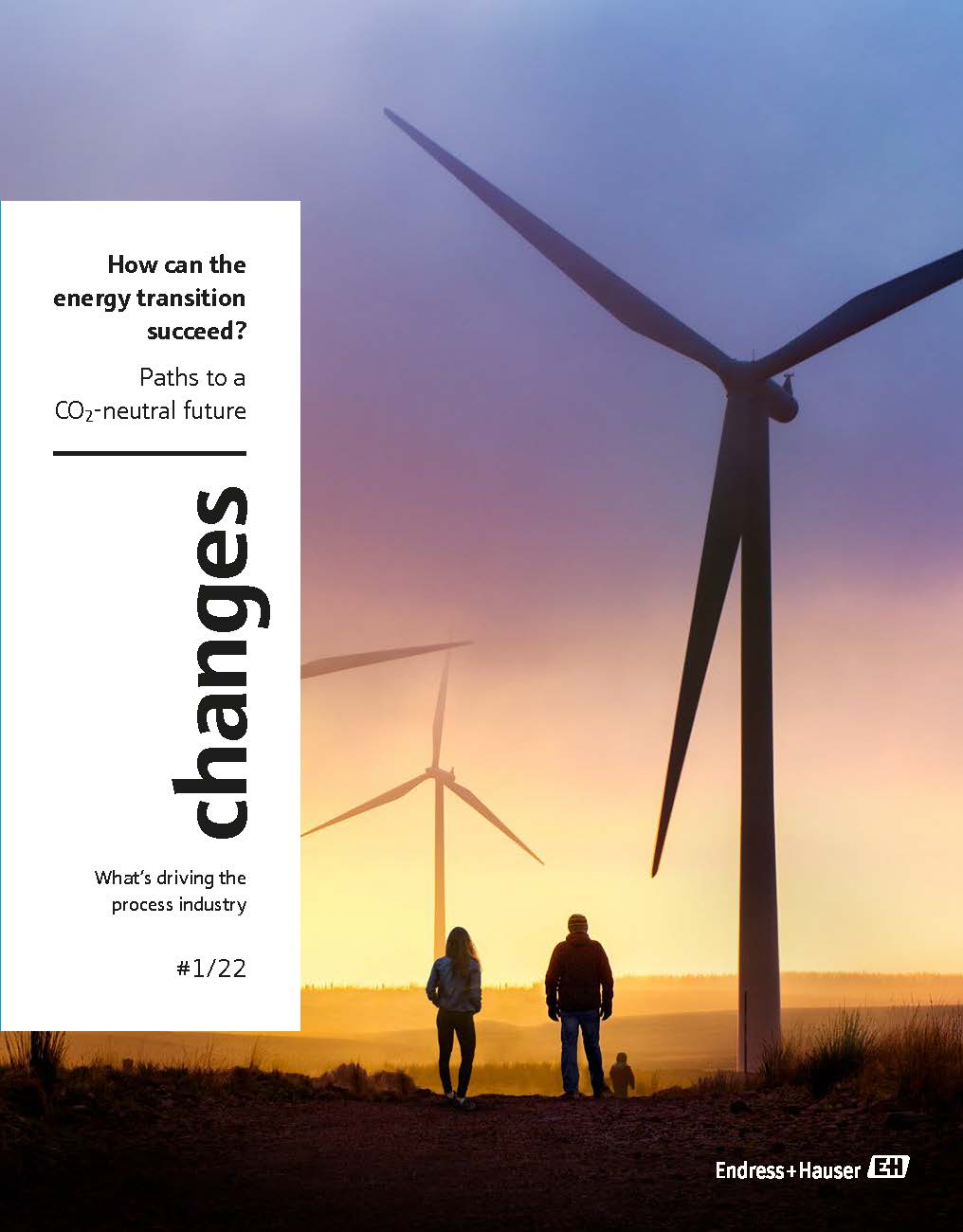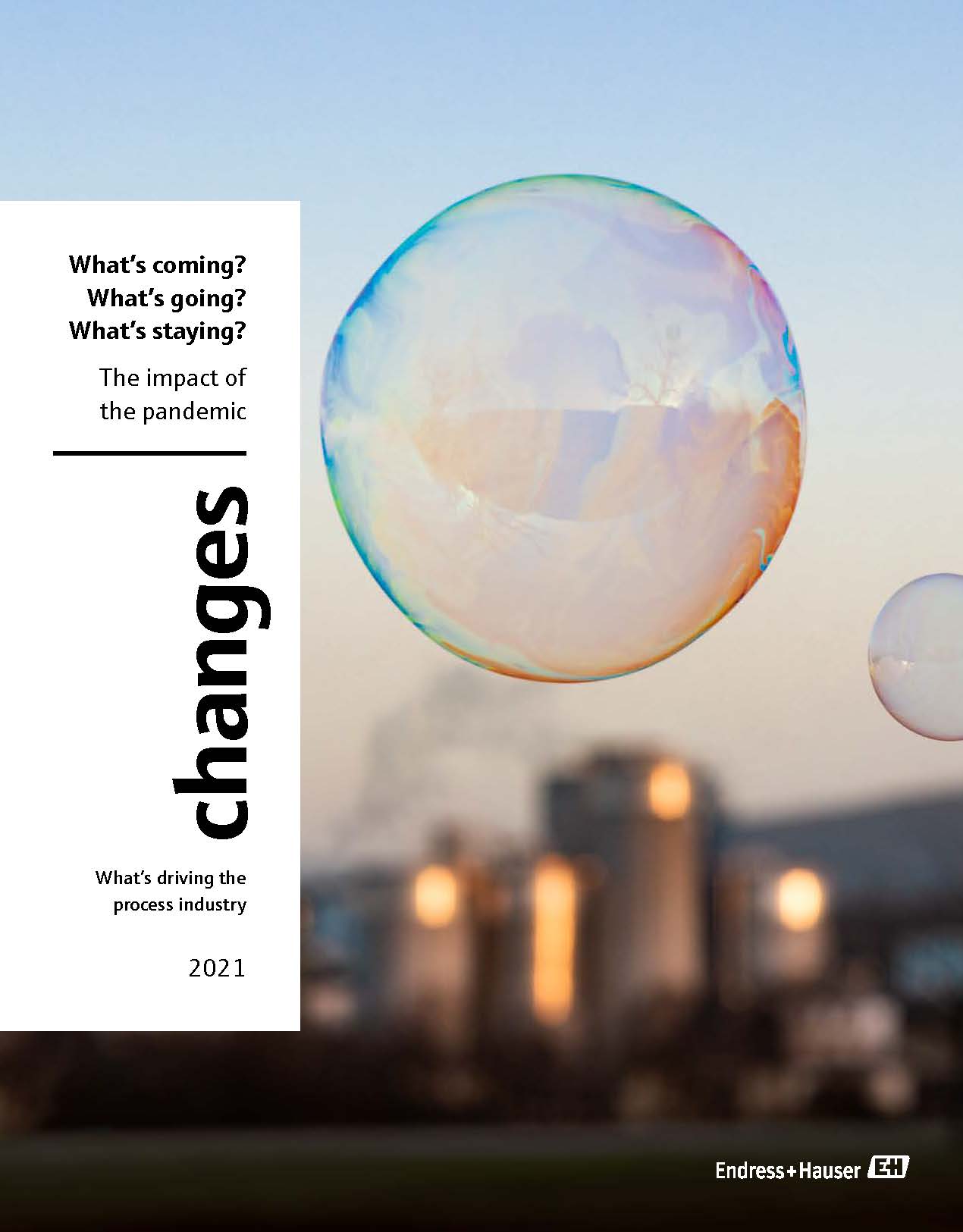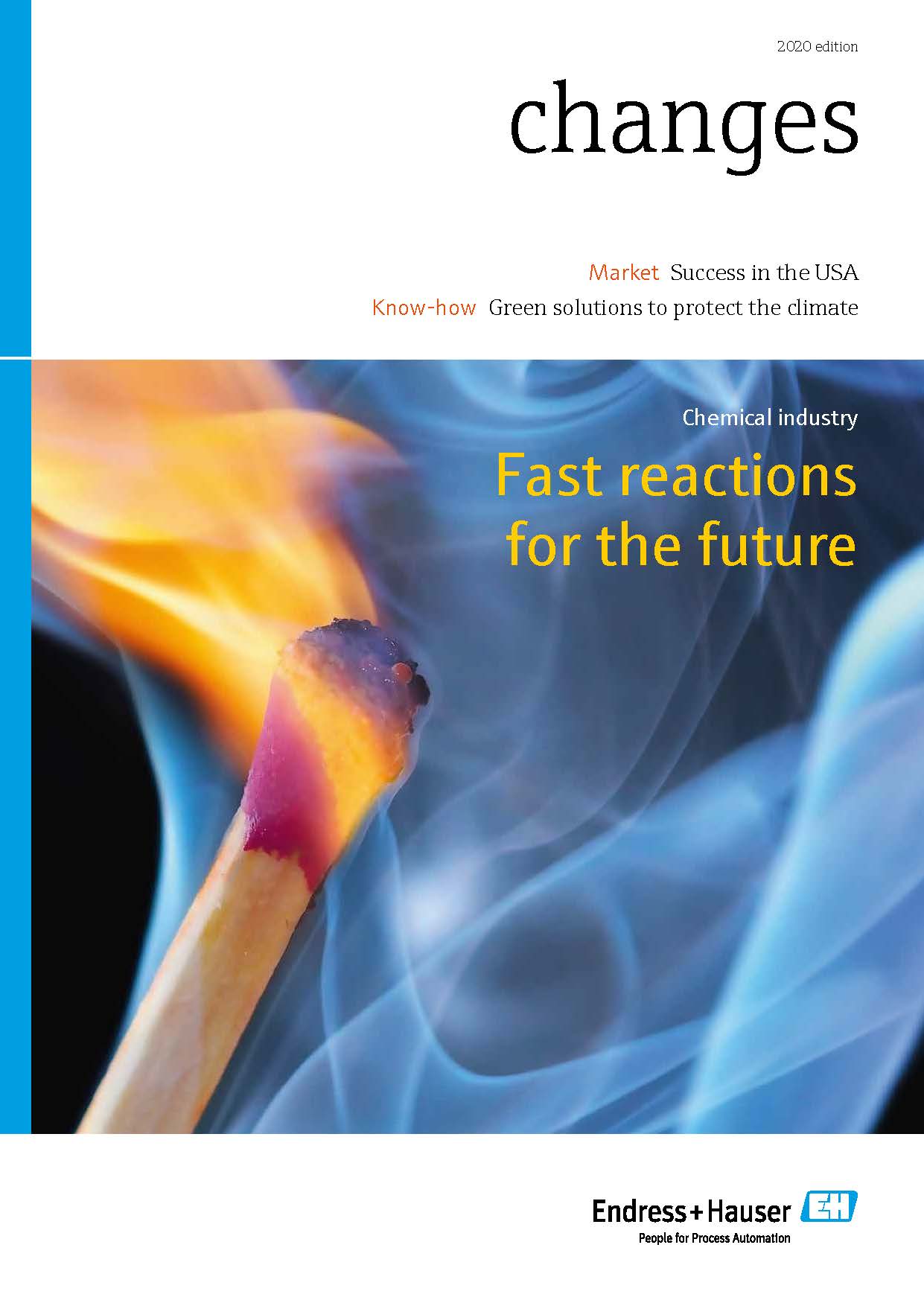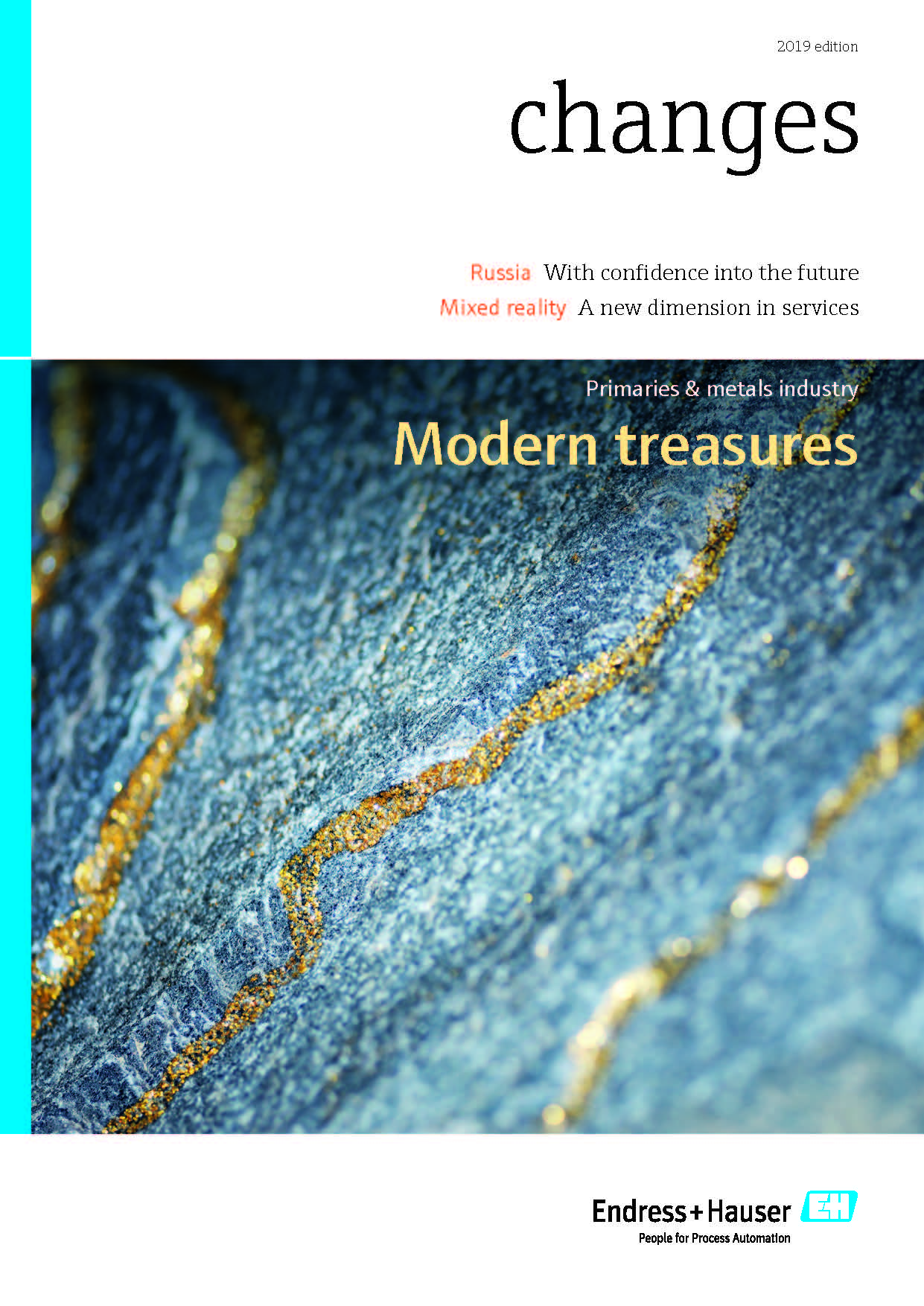Bestowing confidence
Solidarity is crucial in a crisis. Klaus Endress and Matthias Altendorf agree that its foundation has to be laid during good times.
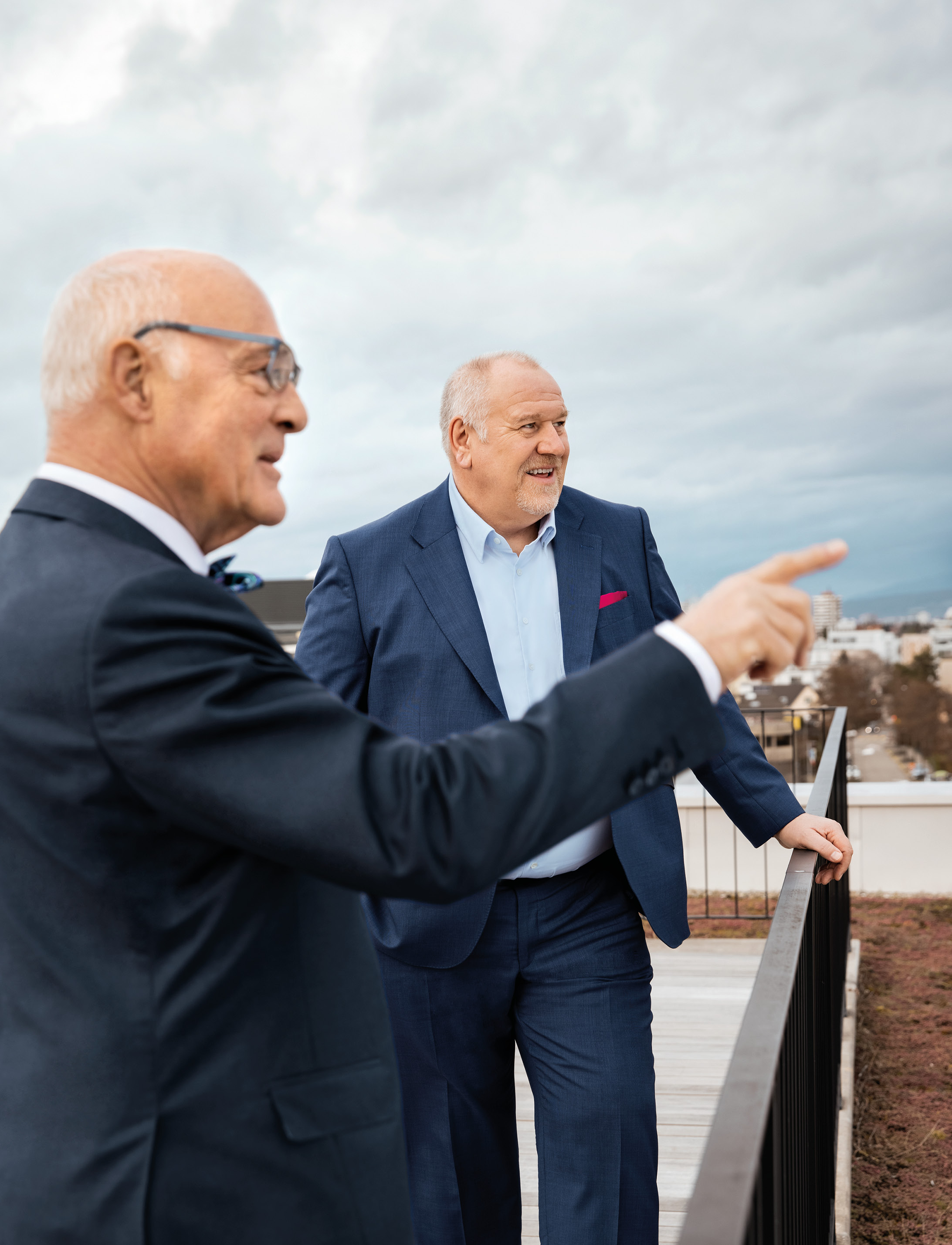
Mr Endress, how has the coronavirus pandemic changed your life?
Endress: Being outside, getting exercise, mindfully enjoying nature: these are things I have been doing my entire life. I’m simply doing more of this because of the pandemic.
How about you, Mr Altendorf?
Altendorf: My situation is similar. I get outdoors to do my exercise and let myself be stimulated by nature. What has helped me is discipline. I have the same rhythm regardless of whether I am working from home or at the office. What I sorely miss are the cultural activities: concerts, exhibitions, theater, all of the things that usually inspire us.
How does this impact your job?
Altendorf: As the chief executive of a company, I cannot afford to lose my confidence. I have to be optimistic, yet stay realistic and objective. This balancing act becomes more difficult in the absence of interaction with the outside world. That’s why I always seek the long view: a strategy, a long-term goal. This long-term perspective helps me to stay positive.
How does that long view shape up at Endress+Hauser?
Altendorf: We said from the start that we want to focus on protecting people and do the best job possible of serving our customers. And without being able to foresee the impact
of the pandemic, it was nonetheless important to us to sidestep short-time working if at all possible, and avoid layoffs. At the same time we decided not to cut back on any of
our large-scale investments. We stuck with all of this. But we thought through scenarios in terms of their economic impact on the company.
“One of the most important tasks for top management during a crisis is to provide a sense of security.”
Klaus Endress,
Supervisory Board President of the Endress+Hauser Group
And where did you eventually land?
Altendorf: In hard numbers, we are running 2.8 percent behind last year, although currency exchange rate fluctuations are having the biggest impact. Return on sales remained on target. We created 126 new jobs and hired virtually all of our apprentices who finished their training. All told, we can be satisfied with the results.
Endress: In light of the circumstances, these are good, even enviable, figures. One key aspect was certainly the fact that we learned a few things from the financial crisis in 2008 /2009: that we need to think in all possible, and impossible, directions, including crazy ideas, and then implement them if they help us. People can do this only if they have a sense of security. And one of the most important tasks for top management during a crisis is to provide this security.
How do you make that work?
Endress: By sending out the message during a crisis that we will avoid short-time working, that we will make our way through this together. The employees see that the situation
is not easy, but they realize they are not being let go, that they have work and can give 100 percent. What distinguishes us and other good companies from the rest of the
world is solidarity. It sounds a bit exaggerated, but we’re one big family. Here there is a ‘we’ feeling. That mobilizes incredible forces!
Altendorf: People feel this solidarity. There is an inherent sense of trust in the company, which has to be earned and renewed time and time again. The former head of Deutsche Bank, Alfred Herrhausen, once said: “We have to say what we think. We have to do what we say. We also have to be what we do.”
What does the pandemic mean for solidarity within the shareholder family, Mr Endress?
Endress: We held a meeting between the inner circle of family members and top management right at the beginning of last year. After that, practically all in-person encounters were canceled. There is a large flow of information, but the physical presence is missing. That wears you down!
Mr Altendorf, how is the coronavirus changing the world of Endress+Hauser and that of the customers?
Altendorf: I see four major elements. One point is the future of sales, the interface to the market and customers. In the image of the tree that Mr Endress likes to use, this is the crown. We need a larger surface that can absorb the sunlight in order to close the gaps and achieve a greater presence. In this case we have to utilize every available opportunity in the interaction between the analog and digital worlds.
Endress: Digitalization and online platforms create additional access to the market
and customers. The further we branch out, the better it is for us. The digital world will not replace the physical sales environment, however. People always need people. The terms ‘knowledge’ and ‘warmth’ are incredibly important: knowledge can be digitally transported, but warmth requires closeness. When the media says home working is
the future, that’s wrong. Employees miss interacting with other people when they work from home.
Altendorf: The way in which we work together will nevertheless change – and that’s another element. When people are all physically present in a room, collaboration is different than if they are collaborating in a mixed or fully digital environment.
“As CEO, I cannot afford to lose my confidence. That’s why I always seek the long view. This helps me to stay positive.”
Matthias Altendorf,
CEO of the Endress+Hauser Group
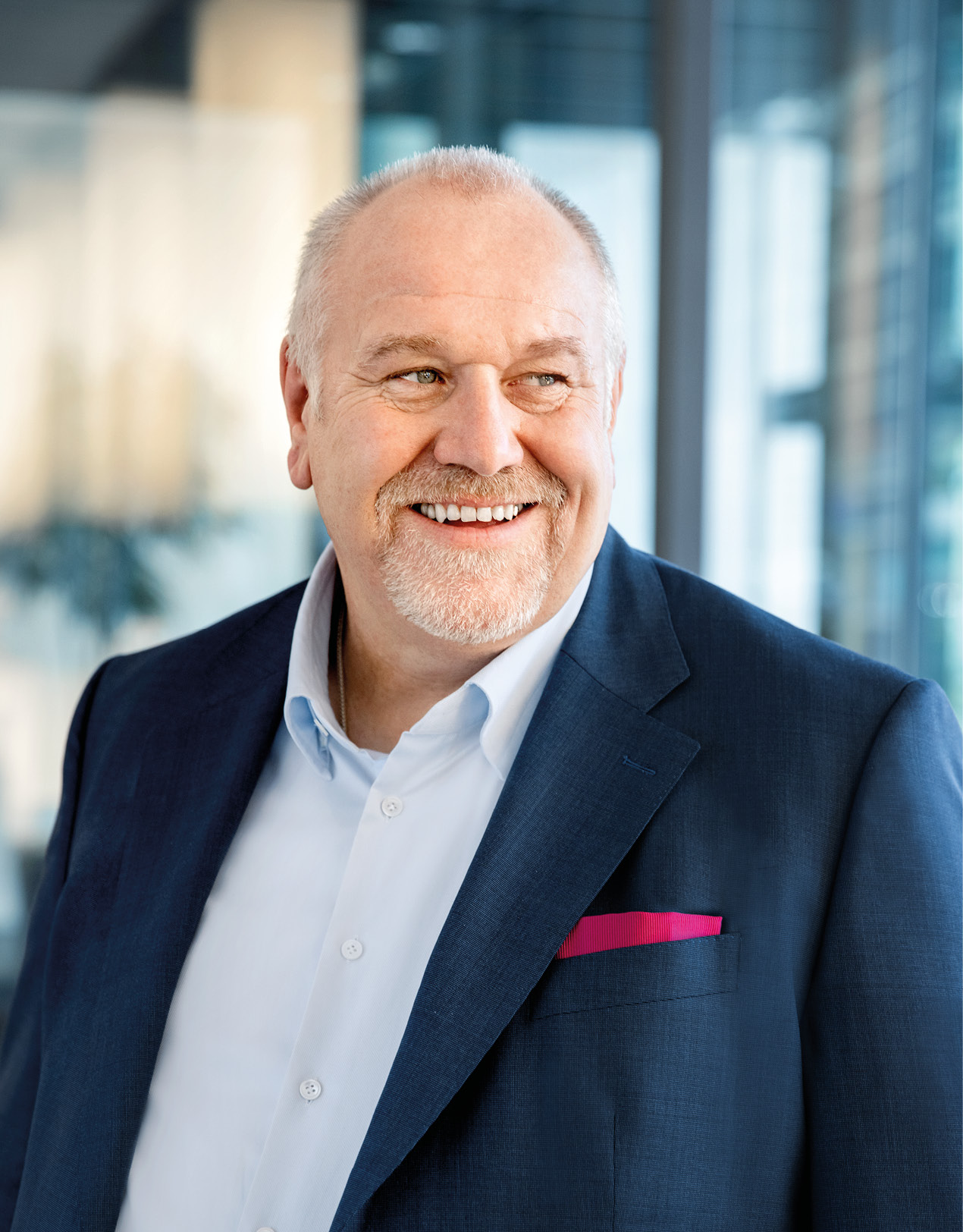
“What distinguishes us and other good companies from the rest of the world is solidarity.”
Klaus Endress,
Supervisory Board President of the Endress+Hauser Group
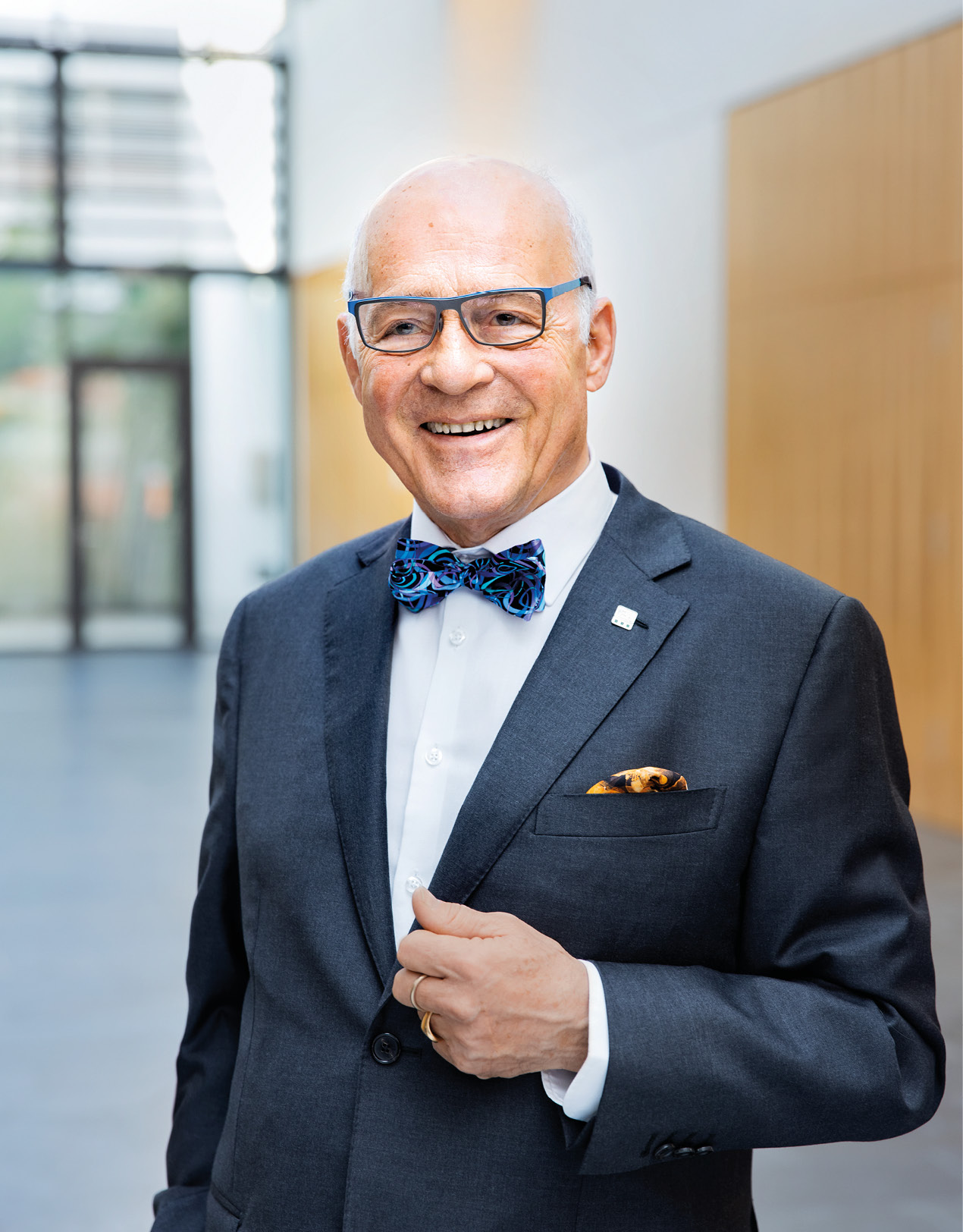
“The pandemic will keep us and society occupied for a long time to come.”
Matthias Altendorf,
CEO of the Endress+Hauser Group
You talked about four elements…
Altendorf: A third element is the meaning of work. Particularly in Western societies, people are searching for meaning. For a long time we were concerned about the possibility of not finding enough qualified employees; today I’m convinced there will always be enough people who want to work for Endress+Hauser – as long as we provide what they are looking for. Added to that is the way we deal with people. But most of all, what we do is exciting because we deal with fundamental global challenges. Our activities have great value, not just for the company, but also for society.
And the fourth?
Altendorf: The fourth element is robustness of supply chains. With countries closing their borders, supply chains have been interrupted. Endress+Hauser was able to ensure the availability of materials, but many of our customers experienced difficulties. That will lead to new thoughts about how supply chains will be organized.
Endress: What it all boils down to is an incredibly high degree of flexibility that everyone must have!
Is there anything else that we can learn from the crisis?
Endress: After the crisis is before the crisis. During the financial crisis we discovered
that biotechnology and life sciences were continuing to boom – precisely the areas where we were not performing well. We changed that. We invested, made acquisitions and strengthened our expertise in the field of analysis technology. We also moved into the laboratory business. All of these things helped us tremendously over the past year.
Prior to Covid-19, protection of the climate and the environment dominated public discourse. What happens next?
Altendorf: People have developed a different awareness of issues such as health, nutrition and protecting the environment. And climate change is not going away. It’s something that must and will occupy all of us as humans. Government policies create the framework, such as the European Union and its climate objectives. And I see lots of efforts by industry to reduce the carbon footprint.
Endress: Coronavirus will help us to become more sustainable.
Looking to the future, do you think the most difficult times are still ahead of us when it comes to the pandemic?
Altendorf: The pandemic will certainly keep us and society occupied for a very long time to come. The first nine months of this year will likely be a struggle until larger segments of society gain a sense of security and confidence through vaccinations. Vaccinations are the only thing that can return us to a sense of normality similar to what we had before. The old normality will never return… but I do believe the economy will then experience a certain degree of momentum.
Endress: Confidence is the key. Without it, there are no investments – and no growth. But I’m confident we will reach our targets, because within the company there is much that has been created and further developed over a period of decades. We have tremendous people and first-rate offerings. And we’ve never had so many great product innovations as we do this year!
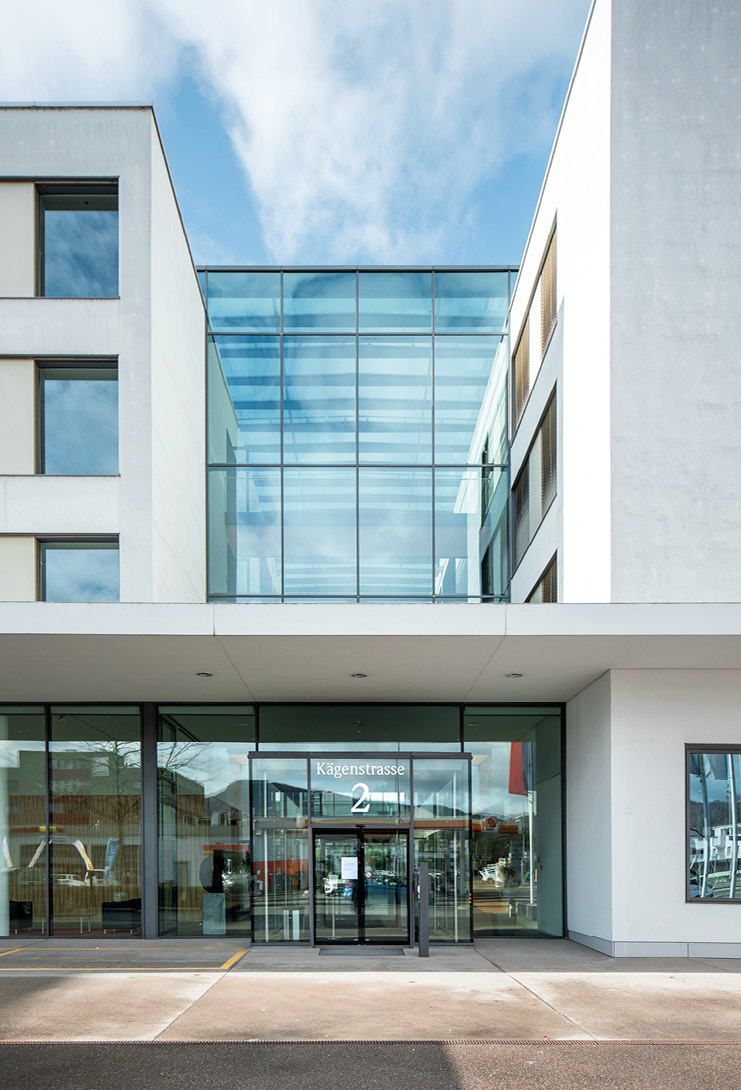
In normal times, a place for personal encounters: the headquarters in Reinach, Switzerland.
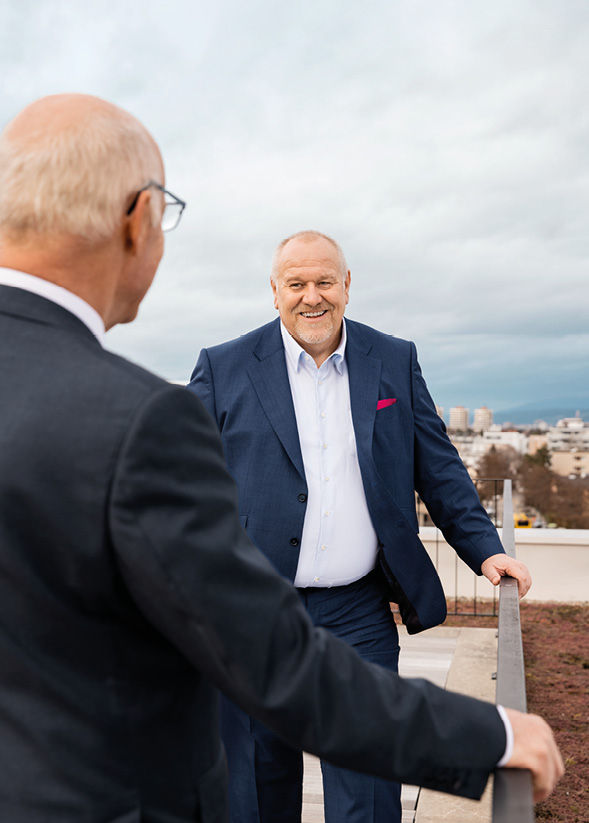
Physical distance, ideal proximity: Matthias Altendorf (right) in discussion with Klaus Endress, here on the roof terrace of the company building.
Published 01.09.2021, last updated 20.06.2022.
Dive into the world of the process industry through new exciting stories every month with our «changes» newsletter!
